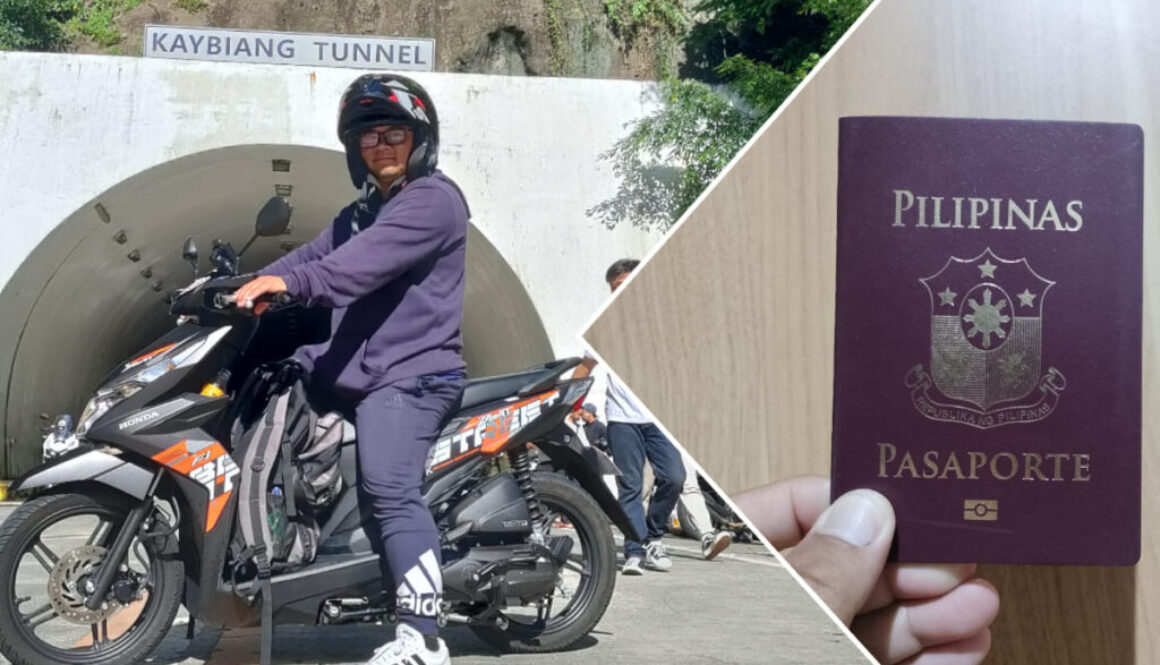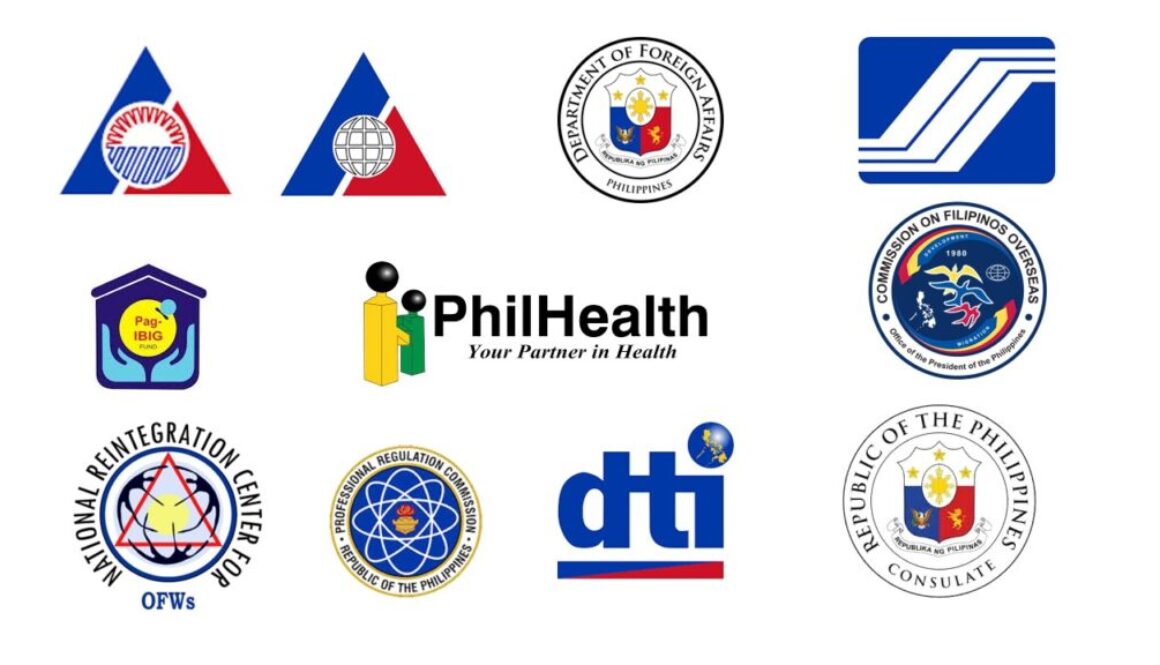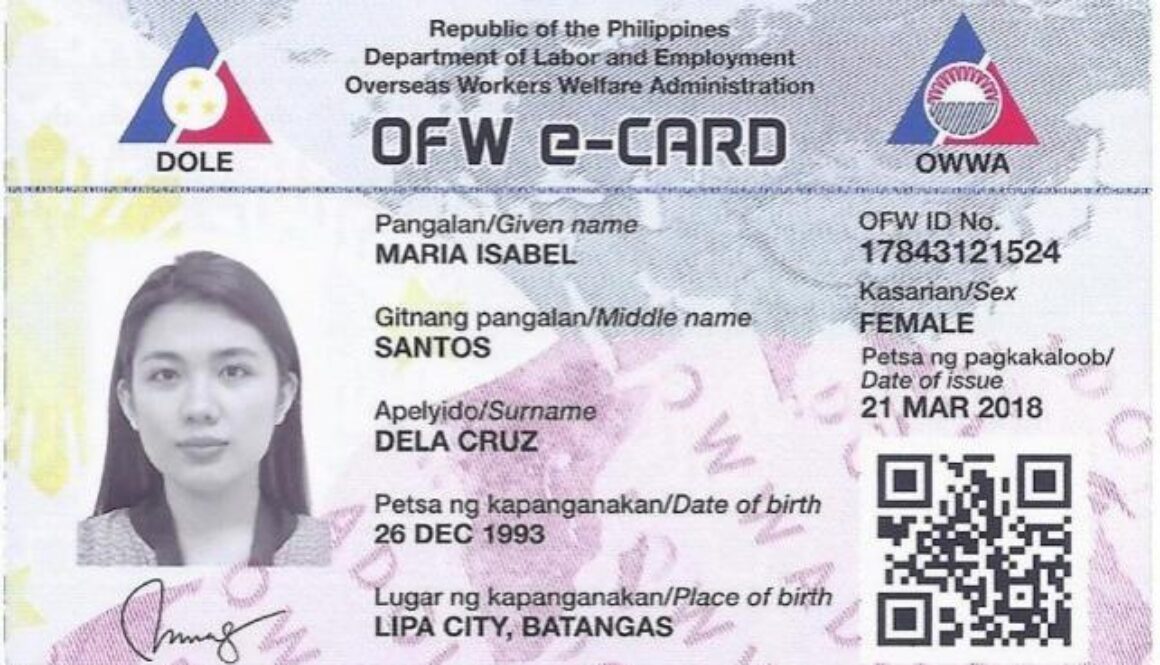Understanding the World of OFWs: History, Challenges, and Contributions
For many Overseas Filipino Workers (OFWs), leaving home to work abroad is more than just a job—it’s a sacrifice made for family and a dream of a better life. But what led so many Filipinos to seek work overseas, often facing the pain of being away from loved ones and dealing with financial pressures? What unique challenges do OFWs face, from homesickness to difficult work environments? And how do their sacrifices shape the lives of their families and even the future of our country? By understanding the history and struggles of OFWs, we can celebrate the resilience, strength, and contributions they bring, both abroad and back home.
What is an OFW?
An OFW, or Overseas Filipino Worker, is a Filipino who works in another country to earn money for themselves and their family back home. Many OFWs leave behind their loved ones to get better-paying jobs abroad, so they can provide a better life for their families. These hard-working Filipinos play a big role in helping the Philippine economy by sending money back, which supports millions of families and boosts local businesses. Learning about the lives of OFWs helps us understand and appreciate the sacrifices they make—working far from home, often facing tough situations, just to help their families and make a difference for the country.
What is the Meaning of OFW?
OFW stands for “Overseas Filipino Worker,” a term officially recognized by the Philippine government to describe Filipinos who work in other countries. Sometimes, terms like “migrant worker” or “expatriate” are also used, but each has its own meaning. In the Philippines, “OFW” is the most common term and has a special place in society. It’s not just a label; it represents the strength, sacrifice, and success of Filipinos who leave home to work abroad for their families. Over time, “OFW” has come to symbolize the resilience and dedication of Filipino workers worldwide.
Brief History of OFW
The story of Overseas Filipino Workers, or OFWs, began in the 1970s when President Ferdinand Marcos started policies to send Filipino workers abroad. This plan was made to help the struggling Philippine economy by giving Filipinos opportunities to earn money in other countries. Over time, especially in the 1990s and early 2000s, more Filipinos chose to work overseas, especially in the Middle East and Asia, where there were many job openings. Today, OFWs work in many fields all around the world, including healthcare, engineering, construction, and domestic services. Their work not only helps their families but also plays a big role in supporting the country’s economy.
Top 10 Countries with the Greatest Number of OFWs
Many Filipinos work in different countries to support their families back home. Some places have become top choices for Overseas Filipino Workers (OFWs) because of job opportunities. Here are the top 10 countries where most OFWs are currently working.
- List of Countries:
- Saudi Arabia
- United Arab Emirates
- Kuwait
- Qatar
- Hong Kong
- Singapore
- Japan
- Canada
- United States
- United Kingdom
Why Filipinos Choose to Work Overseas as OFWs
Many Filipinos work overseas as Overseas Filipino Workers (OFWs) to improve their lives and support their families. Understanding the reasons behind this choice helps us appreciate their sacrifices and dedication to building a better future. Here are ten reasons why Filipinos become Overseas Filipino Workers (OFWs):
Higher Wages and Better Opportunities
Many Filipinos seek higher salaries and better job prospects abroad, which allows them to support their families financially.
Limited Opportunities Locally
Local job options in the Philippines can be limited or low-paying, making it difficult for many to find work that meets their needs.
Desire for a Better Quality of Life
Many OFWs want to achieve a more stable and prosperous future for themselves and their families.
Economic Pressure
The rising cost of living in the Philippines pushes many people to find work overseas to earn more money and improve their situation at home.
Professional Growth
Working abroad provides opportunities for skill development and career advancement that may not be available locally.
Educational Opportunities for Children
Many OFWs aim to provide better education for their children by earning more money overseas.
Job Security
Some Filipinos find more stable job security abroad compared to local employment, where contracts may be temporary or jobs can be scarce.
Access to Benefits
Many overseas jobs offer benefits like health insurance, housing, and retirement plans that are not always available in local jobs.
Support for Extended Family
OFWs often send money not just to their immediate families but also to extended family members, helping to uplift their whole community.
Desire to Explore New Cultures
Some Filipinos are motivated by the chance to experience different cultures and travel while working abroad, expanding their horizons.
Challenges that OFWs Face
Overseas Filipino Workers (OFWs) face various challenges while working abroad, which can make their experiences difficult. Understanding these challenges helps us recognize their sacrifices and the strength they show in pursuing a better life for their families. Here are the top 10 challenges that Overseas Filipino Workers (OFWs) face while working abroad:
Separation from Family
Being away from loved ones for extended periods can lead to feelings of loneliness and homesickness.Cultural Adjustment
OFWs often struggle to adapt to new cultures, languages, and customs, which can be overwhelming.Workplace Abuse
Some OFWs face exploitation, mistreatment, or unfair working conditions from employers.Financial Pressure
High costs of living in foreign countries can create financial stress, especially if the initial salary does not meet expectations.Limited Support Systems
Many OFWs lack a support network in their host country, making it difficult to cope with challenges.Health Risks
Working in unfamiliar environments may expose OFWs to health risks, with limited access to medical care.Legal Issues
Navigating foreign laws and regulations can be challenging, leading to potential legal problems.Job Insecurity
Economic downturns or changes in employer needs can lead to sudden job loss or reduced hours.Discrimination
Some OFWs experience discrimination or prejudice based on their nationality or background.Emotional Strain
The pressure to provide for families and the stress of living abroad can lead to anxiety and mental health issues.
What OFW is Known For?
Overseas Filipino Workers (OFWs) are known for their hard work, resilience, and dedication to supporting their families back home. Their contributions to the global workforce and the Philippine economy have earned them the title of “modern-day heroes” in the eyes of many Filipinos. Here are the top 5 things that Overseas Filipino Workers (OFWs) are known for:
Sacrifice and Hard Work
OFWs are known for enduring hardships and long hours of work to provide for their families back home.Resilience and Adaptability
They are recognized for their ability to adapt to different cultures and overcome various challenges while living abroad.Contributors to the Philippine Economy
OFWs are celebrated as “modern-day heroes” for the significant economic boost they bring through their remittances.Strong Family Values
OFWs are known for prioritizing their families, often sending money home to support their children’s education and well-being.Community Support
Many OFWs actively support their communities in the Philippines by sharing their earnings and helping with local projects.
Philippine Government Agencies that Support Overseas Filipino Workers (OFWs)
The Philippine government has established several agencies dedicated to providing support and services to Overseas Filipino Workers (OFWs). These agencies play a crucial role in assisting OFWs with various needs, including job placement, legal aid, and social welfare programs, ensuring their rights and welfare are protected while they work abroad.
Here’s the integrated list of Philippine government agencies that cater to Overseas Filipino Workers (OFWs), including their websites:
Department of Labor and Employment (DOLE)
This agency formulates policies and programs to protect the rights of OFWs and ensure their welfare.
Website: dole.gov.ph2. Overseas Workers Welfare Administration (OWWA)
OWWA provides support services, including financial assistance, skills training, and social benefits for OFWs and their families.
Website: www.owwa.gov.ph3. Philippine Overseas Employment Administration (POEA)
POEA regulates the recruitment and deployment of OFWs and provides information about job opportunities abroad.
Website: www.poea.gov.ph4. Department of Foreign Affairs (DFA)
The DFA assists OFWs with passport services, legal issues, and protection during emergencies in foreign countries.
Website: www.dfa.gov.ph5. National Reintegration Center for OFWs (NRCO)
NRCO offers programs and services to help OFWs reintegrate into the community upon their return to the Philippines.
Website: www.nrco.dole.gov.ph6. Technical Education and Skills Development Authority (TESDA)
TESDA provides skills training and education programs to improve the employability of OFWs and enhance their job prospects.
Website: www.tesda.gov.ph7. Bureau of Immigration (BI)
The BI regulates the entry and exit of OFWs and ensures compliance with immigration laws.
Website: www.immigration.gov.ph8. Social Security System (SSS)
SSS offers social security benefits, including pensions and loans, to OFWs to help secure their financial future.
Website: www.sss.gov.ph9. PhilHealth
This agency provides health insurance coverage for OFWs and their dependents to ensure access to medical services.
Website: www.philhealth.gov.ph10. Department of Trade and Industry (DTI)
DTI supports OFWs who wish to start their businesses by providing training, resources, and access to financial assistance.
Website: www.dti.gov.ph
These agencies work collaboratively to ensure the welfare and protection of OFWs, providing them with various support services.
Common Problems of OFWs
Overseas Filipino Workers (OFWs) face a range of common problems that can make their experiences abroad challenging. Understanding these issues is essential to recognizing the sacrifices they make and the support they need while working in foreign countries.
Here are the top 10 challenges faced by Overseas Filipino Workers (OFWs):
Financial Challenges
Issues such as debt, insufficient savings, and poor financial management often create stress for OFWs.Homesickness
Many OFWs struggle with feelings of loneliness and sadness due to being away from their families for long periods.Exploitation and Abuse
OFWs may encounter problems like contract disputes, workplace mistreatment, and unpaid wages, leading to feelings of helplessness.Job Insecurity
The risk of sudden job loss or instability caused by unforeseen global events can create anxiety for many workers.Cultural Barriers
Adapting to new languages and social norms can be difficult, making it hard for OFWs to integrate into their host countries.Loneliness and Mental Health Issues
Limited support networks and high-stress work environments can lead to emotional challenges for many OFWs.Family Strain
Prolonged separations can result in relationship issues or difficulties with family dynamics back home.Health Concerns
OFWs may face challenges accessing healthcare services abroad and may have trouble utilizing Philippine health insurance.Legal Issues
Complications related to visas, work permits, and labor laws can create significant stress and uncertainty for OFWs.Reintegration Challenges
Adjusting back to life in the Philippines after working abroad can be difficult, as many OFWs face challenges in reestablishing their lives.
OFW Remittances
Remittances from Overseas Filipino Workers (OFWs) are very important to the Philippine economy, bringing in billions of dollars every year. These funds help many Filipino families pay for everyday needs like food, education, and healthcare. When families receive this money, they often spend it on local goods and services, which helps local businesses grow and supports the country’s economy. The Philippines is always one of the top countries in the world for receiving remittances, showing how essential OFWs are to the country’s financial health and progress.
Here’s the list of the top domestic remittance centers for Overseas Filipino Workers (OFWs), along with their websites:
Western Union
A well-known remittance service provider that facilitates money transfers globally.
Website: www.westernunion.comM. Lhuillier
This company offers remittance services along with pawning and other financial services across the Philippines.
Website: www.mlhuillier.comCebuana Lhuillier
Known for its remittance services, this center also provides pawnshop and other financial solutions.
Website: www.cebuanalhuillier.comPalawan Pawnshop
A popular choice for remittances and financial services, particularly in rural areas.
Website: www.palawanpawnshop.comLBC
LBC provides logistics and remittance services, making it easy for OFWs to send money home.
Website: www.lbcexpress.comRD Pawnshop
Offers a range of financial services, including remittances, loans, and pawning.
Website: www.rdpawnshop.comGCash
A mobile wallet that allows users to send money, pay bills, and purchase items online.
Website: www.gcash.comMoneyGram
An international money transfer service that enables fast and reliable remittances worldwide.
Website: www.moneygram.comSmart Padala
A remittance service provided by Smart Communications, facilitating money transfers across the Philippines.
Website: www.smart.com.ph
These remittance centers offer various options for OFWs to send money home safely and conveniently.
Conclusion
OFWs are more than just people working overseas—they’re the reason many Filipino families have better lives and are able to afford basic needs and education. Even though working abroad can be tough, OFWs keep going because of their love for their families and their hope for a brighter future. They play a big role in keeping the Philippine economy strong, and it’s important to support them through programs, financial education, and fair treatment. By understanding what OFWs go through, we can better appreciate their hard work and dedication to making life better for everyone back home.
Frequently Asked Questions (FAQ)
- What are the common types of jobs that OFWs take?
OFWs work in various sectors, including healthcare (nurses and caregivers), construction, domestic work, hospitality, engineering, and teaching, among others. - How can OFWs send money back home?
OFWs can send money home through various remittance centers such as Western Union, MoneyGram, and GCash, as well as through banks and online transfer services. - What support services are available for OFWs in distress?
OFWs facing difficulties can access support services from the Overseas Workers Welfare Administration (OWWA) and the Department of Foreign Affairs (DFA), which offer legal assistance, counseling, and emergency support. - Are there any benefits for OFWs working abroad?
Many overseas employers provide benefits such as health insurance, housing, paid leave, and retirement plans, which can enhance the overall well-being of OFWs. - How do OFWs prepare for their overseas employment?
Preparation involves securing necessary documents, such as passports and work visas, undergoing skills training, and familiarizing themselves with the culture and laws of the host country. - What is the process for becoming an OFW?
The process typically includes registering with the Philippine Overseas Employment Administration (POEA), securing a job offer from a licensed recruiter, and obtaining the necessary work permits and visas. - How can families support their OFW relatives?
Families can support OFWs by maintaining communication, managing finances wisely, and understanding the challenges they face while working abroad. - What are the rights of OFWs?
OFWs have the right to fair treatment, a safe working environment, timely payment of wages, and access to legal assistance. Awareness of these rights is crucial for their protection. - What resources are available for OFW reintegration?
The National Reintegration Center for OFWs (NRCO) provides programs and services to help OFWs reintegrate into their communities, including livelihood assistance and skills training. - How do remittances impact local communities in the Philippines?
Remittances significantly contribute to local economies by boosting consumption, supporting businesses, and enhancing the standard of living for families, ultimately leading to community development.





